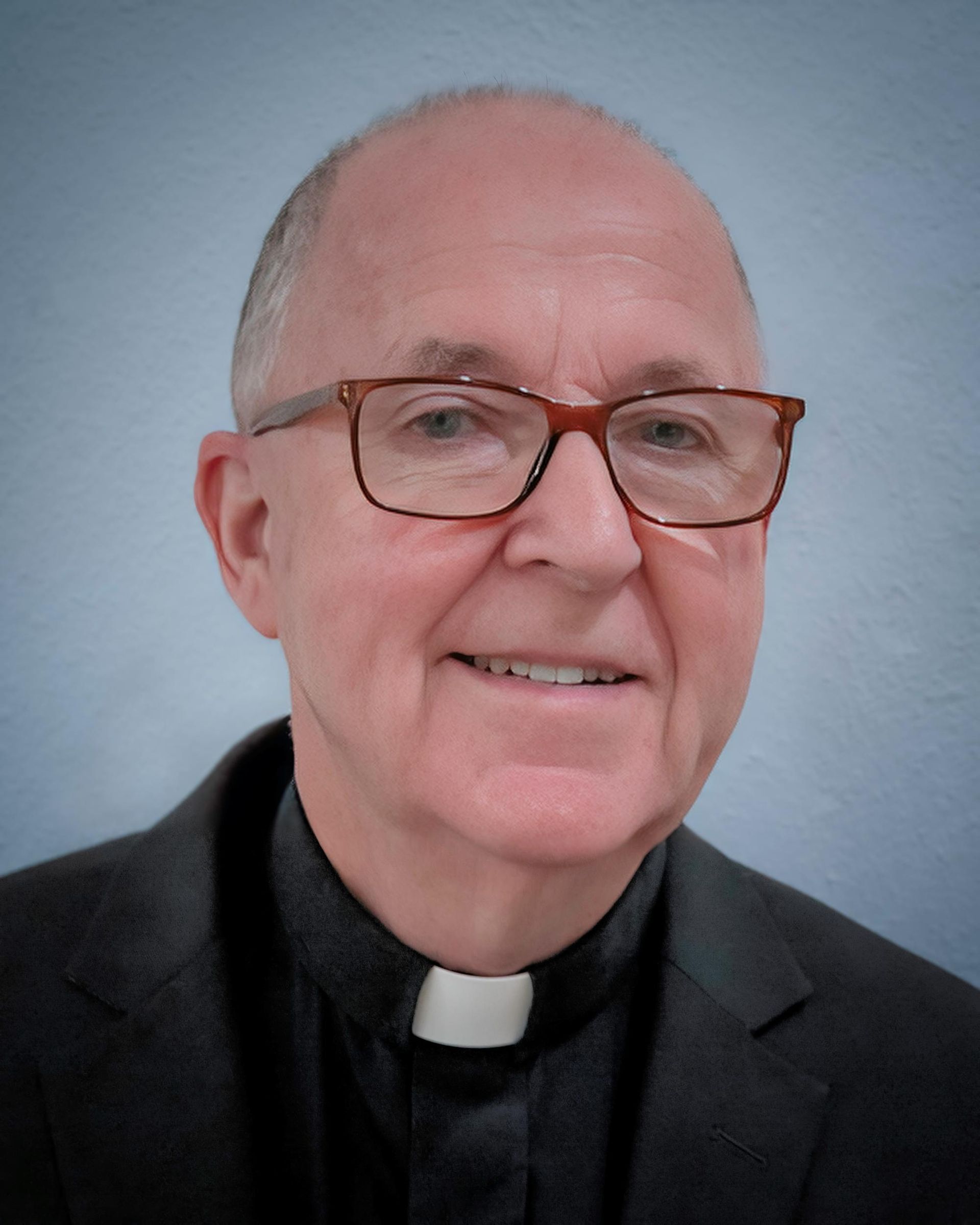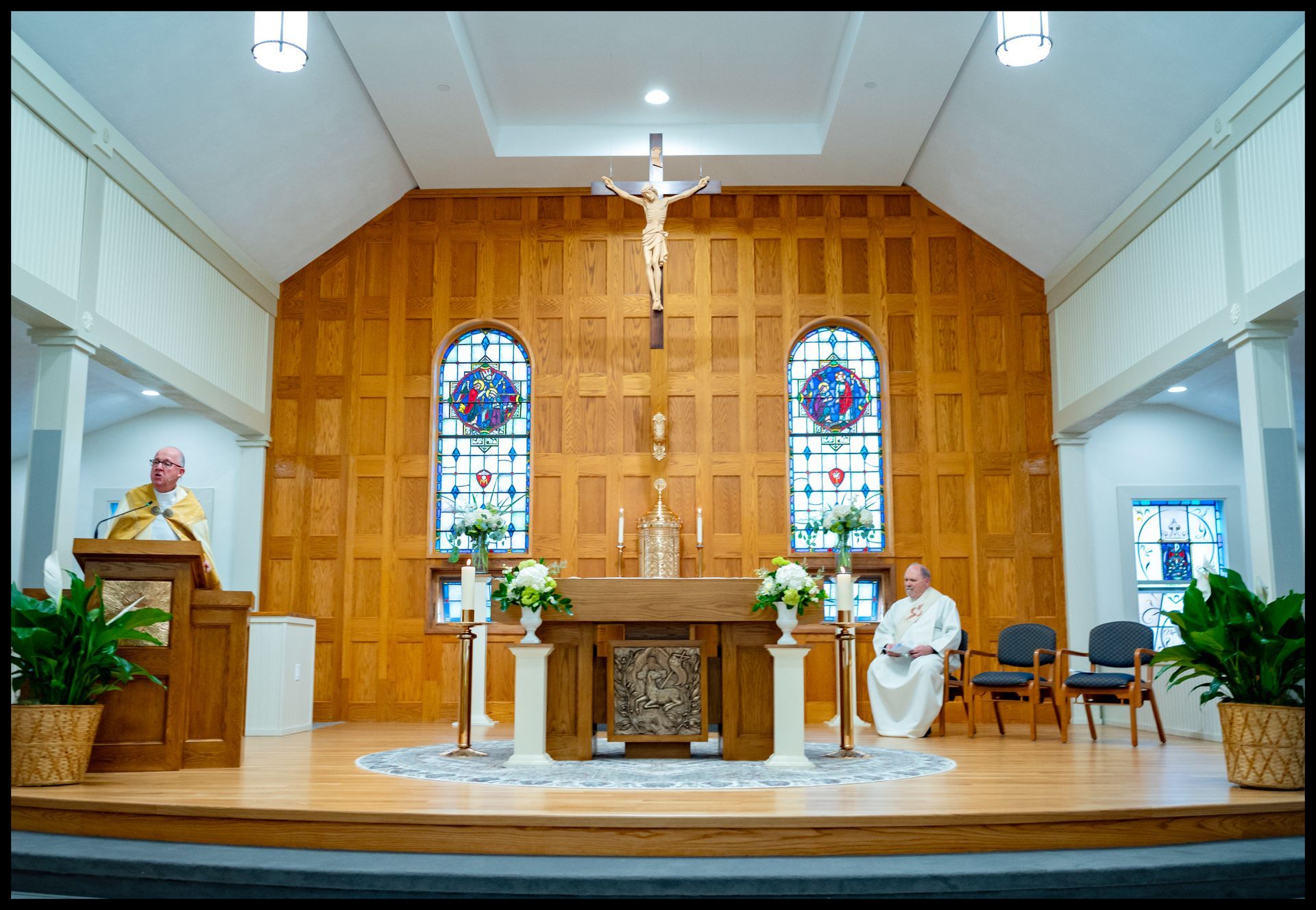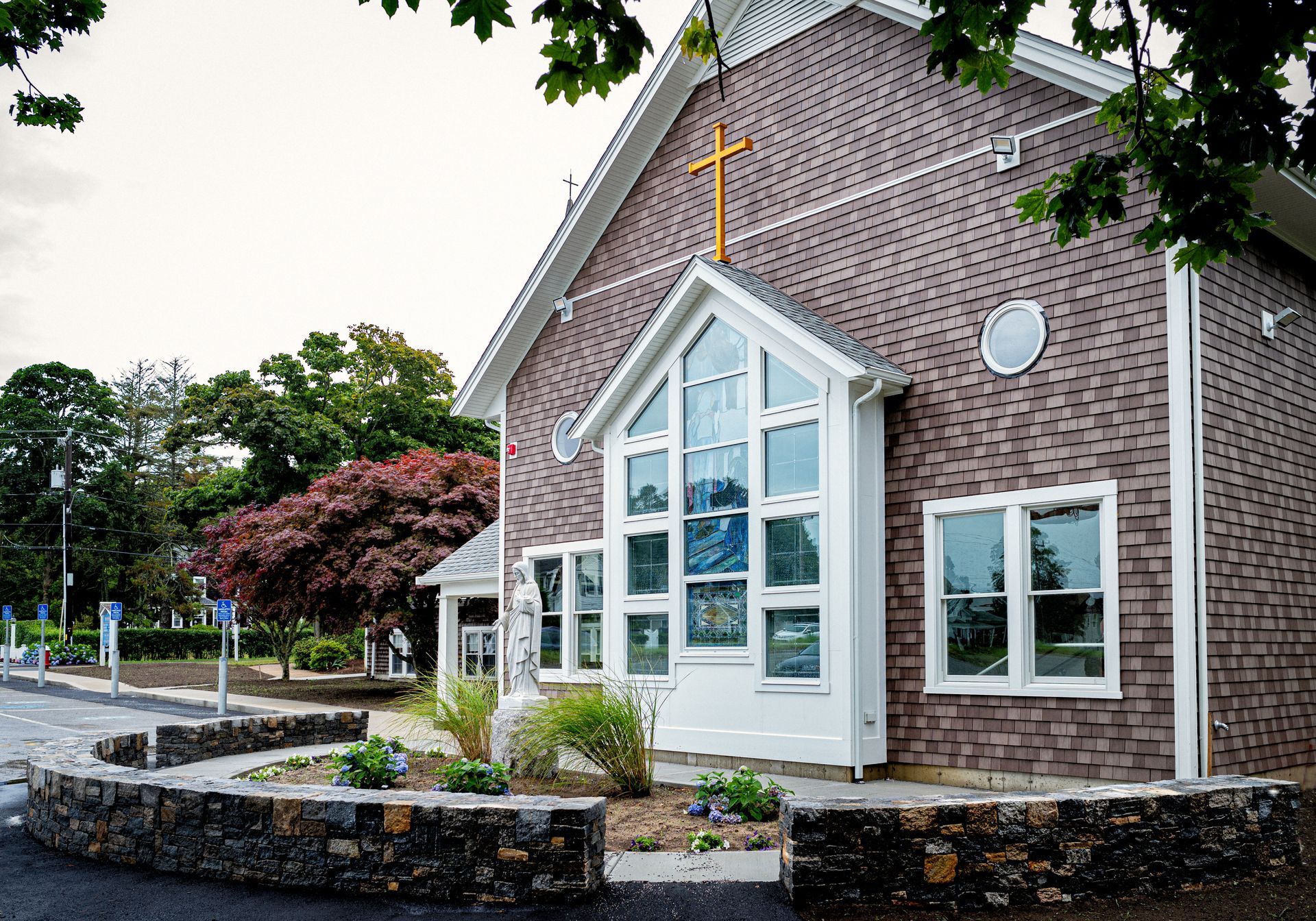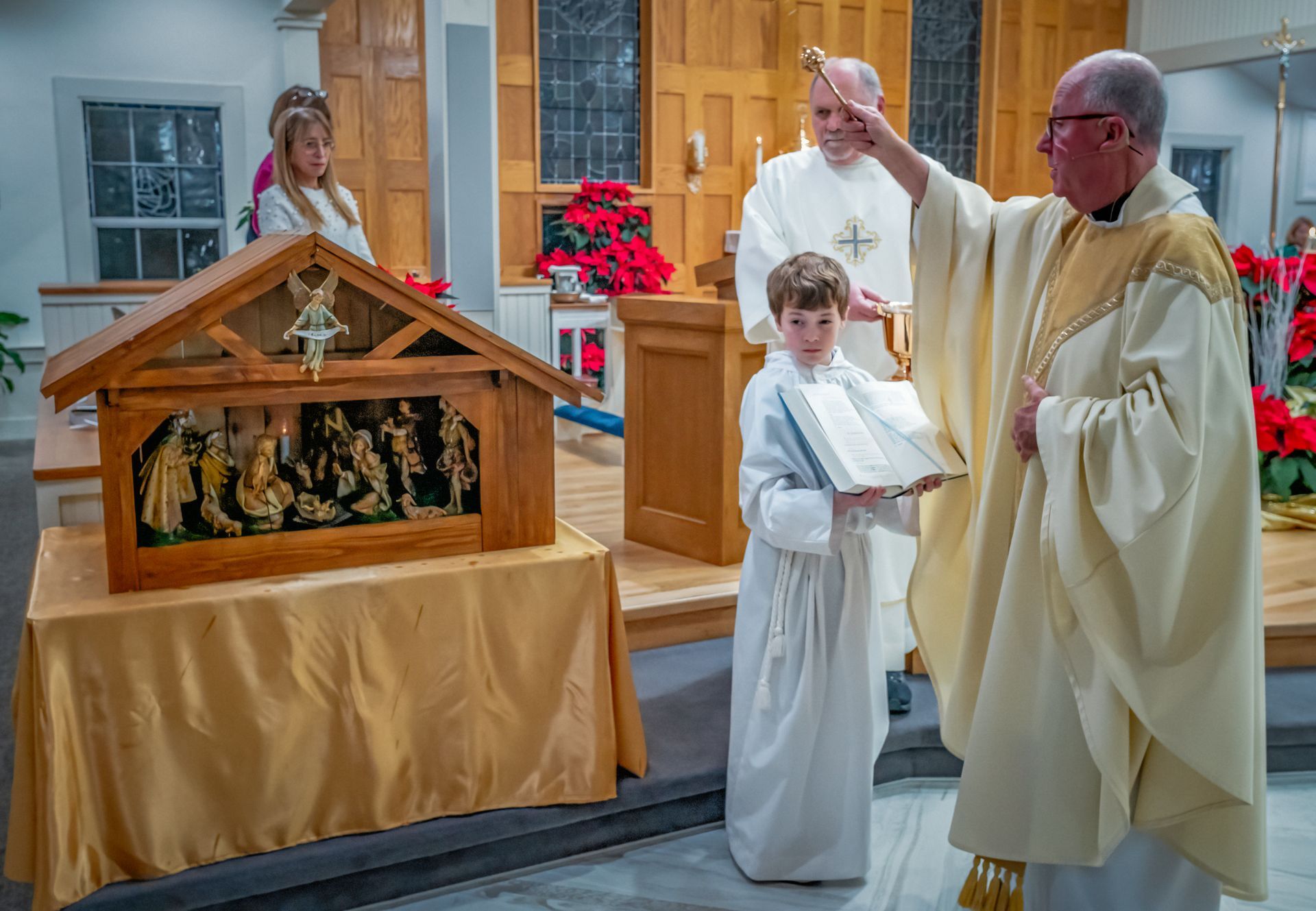30th Sunday of Ordinary Time Homily
30th Sunday of Ordinary Time Homily- Fr. John Sullivan
My seminary classmate and good friend, Bishop Mark O’Connell was named Bishop of Albany this week. Mark isn’t getting a plum of a job. The Diocese of Albany is trying to work its way through Chapter 11 bankruptcy resulting from the sexual abuse scandal, has to proceed with consolidation of parishes, and many other problems. At the news conference announcing his appointment, I believe Mark handled himself well. He showed compassion, a sense of self-effacing humor, and emotion. Naturally, most all the questions from the press centered on the challenges the Catholic Church in Albany faces.
Monday evening, I exchanged emails with another mutual friend who had watched Mark’s introductory press conference on YouTube. We agreed, Mark had presented himself well. Our mutual friend lamented though. He pointed out that all the media enquiries were about problems faced by the Church. No reporter asked anything about Mark’s hopes, dreams, or aspirations for his leadership of the Diocese of Albany.
So often the media concentrates on bad news. I’ve heard there is a news media axiom, “If it bleeds it leads.” Why is that? Well, we are interested in bad news because it is newsworthy. Bad news gains our attention for several reasons. Face it we live pretty predictable lives for the most part. Day to day not very much exciting happens in our lives. Bad news can amaze us and capture our attention for a while. Bad news gives us a distraction.
When we hear news about others, you know those crazy incidents that always seem to happen in Florida, we can smugly say to ourselves, “Well at least that isn’t happening to me.” Bad news about others can actually make us feel better about ourselves. We need to hear bad news at times so we can protect ourselves and loved ones from its consequences. If a storm or other threatening situation is coming our way we need to know about it so we can take preventative measures.
While bad news can be attractive and useful at times, we really hunger for good news. In the depth of our hearts and souls we want to hear a message of hope and optimism. Last week we started a series of homilies we will be sharing over the next few weeks on the topic of Good News.
The good news we will be preaching about is found in sacred scripture’s four stories about the life and ministry of Jesus Christ. We call them gospels. The word gospel comes to us from ancient Greek and means “Good News” or “news that will bring joy.” There effect can be summed up in one verse from one of those gospels. It is John 3:16:
For God so loved the world that he gave his only Son, so that everyone who believes in him might not perish but might have eternal life.
The purpose of this series is to reacquaint ourselves with the aspects of the gospels and other readings from the scriptures that can positively impact our lives and our community.
This series is a good opportunity for you to invite someone you know who needs to hear some good news to church with you. Let’s face it, everyone needs good news so you have many likely candidates among your family, friends, and neighbors. Invite someone you know who is searching for a new direction in their lives to come to Mass with you. Share the good news.
Unfortunately, not everyone perceives Christianity or any religion as Good News. Some of that is because of a misunderstanding about faith but much can be traced to how Christianity has been misrepresented to them by Christians. They have watched Christians and we don’t always present Christ’s message of good news in credible ways. We need to acknowledge how some people can believe the gospel is bad news.
If we have experience in business or really any organization, we realize that for it to be highly successful we have to confront the brutal facts about it and strive to overcome them. To fully grasp the Good News of the Gospels we have to face up to some of its unpleasantness.
Part of that unpleasantness is our desire for validation. We all want to believe we are good people doing a good job. We want to try to convince others we are good parents, spouses, and children. We want to think we are good at our profession or business. Whatever our role in life we want to feel we are good at it. We want to be validated. Face it, that is one of the reasons I stand at the door of the church after Mass every Sunday.
We all hunger for validation but realize we don’t always earn it. We don’t deserve it at times. Deep in our hearts we recognize we aren’t the people we like to believe we are. Under a close examination it would be revealed there are gaps between who we really are and who we want the world to see.
What do we do to try to fill that gap between our perceived self and our real self? There are two options. We’ll look at today’s gospel to examine them.
“Two people went up to the temple area to pray;
one was a Pharisee and the other was a tax collector.”
The Pharisee was a member of a select group in the religious hierarchy of Jesus’ day. They were a group of men who, while following a rather liberal interpretation of scriptures, were extremely strict in the way they appeared to be faithful to the Mosaic Law. The Mosaic Law had 613 precepts and to be strictly faithful to it required a great deal of time, effort, and expense. The normal every day Joe and Mary couldn’t follow the law and didn’t even try. They were often in a state of ritual impurity and unable to worship God faithfully.
Notice I said the Pharisees appeared to be strictly faithful to the Mosaic Law. They often created loopholes and specific exemptions to the law. You might remember Jesus on occasion pointed out that hypocrisy to them. Yet, they were held in high esteem by the community and had a reputation for being better than others.
At the opposite extreme were tax collectors. They were seen as traitors of their people. They were involved in a Roman tax system whose proceeds were used to subjugate their fellow Jews. The office of tax collector at higher levels could be used for financial gain but truthfully, most tax collectors were lower level participants who took the job because they had no other choice.
In the Temple, the Pharisee said a prayer:
O God, I thank you that I am not like the rest of humanity—greedy, dishonest, adulterous—or even like this tax collector.
I fast twice a week, and I pay tithes on my whole income.’
One of the first ways to receive validation is to give it to ourselves. The Pharisee does that. He thanks God, he doesn’t thank God for what God has done for him, but for what he feels he has done on his own. The Pharisee validates himself for not being greedy, dishonest, and adulterous.
When we recognize there are gaps between who we should be and who we are, we try to fill them with comparisons with other people. It is never a fair comparison. They are always in areas where we feel we excel and can feel safe. We compare ourselves to others using areas of our lives where we aren’t challenged personally.
We find areas of our lives that might not be perfect but are secure enough to gloat a bit. We tell ourselves, “I might not win a parent of the year award but at least I don’t beat them, or I might not be the best of spouses but I don’t cheat on them. I might bend the truth at times but I’m not a bold faced liar like them.
When we do that, we are like the Pharisee who told God all the good things, fasting, tithing, and going to church that he did. He told God about all the things he liked doing and could show off about. He told God all about what was easy for him to accomplish.
Doing that is a form of denial. It doesn’t help us grow in faith. That form of prayer doesn’t help make our faults and failures go away. It actually takes more energy to keep trying to tell ourselves and God we are better than other people.
The other approach was the one the tax collector took. He felt nothing in his life deserved validation. So, he prayed:
‘O God, be merciful to me a sinner.’
Since he can’t compare himself to others because he was thought to be the lowest of the lowest. All he can fall back on is asking God to do only what God can do. The tax collector asks God to make atonement for him. Atonement is another word that comes to us from Greek. It means to “fill in the gaps.” The tax collector is asking God, “Oh God make up for what is lacking in me.”
The Good News is that is exactly what God does for us. God fills all the gaps in our lives by, as in the words from John’s gospel I said at the beginning of this homily.
For God so loved the world that he gave his only Son, so that everyone who believes in him might not perish but might have eternal life.
When we recognize the gaps that exist between who we are and who we know we are called to be, we grow as Christians and become more sincere in our faith. When we accept the brutal truth that we are impoverished and need to rely on God and Jesus’ atonement for our gaps, we become like the Tax Collector justified before God. Religious skeptics will see we embody the Good News of the Gospels and are sincere and not hypocritical Christians.
Undoubtedly, in the week ahead we will sin. It is part of our fallen human nature. Resist the temptation to validate yourself by ignore it, blaming, or comparing ourselves to others who are worse. Instead, quietly recite the prayer of the tax collector:
‘O God, be merciful to me a sinner.’
Then you will be able to go away justified.






